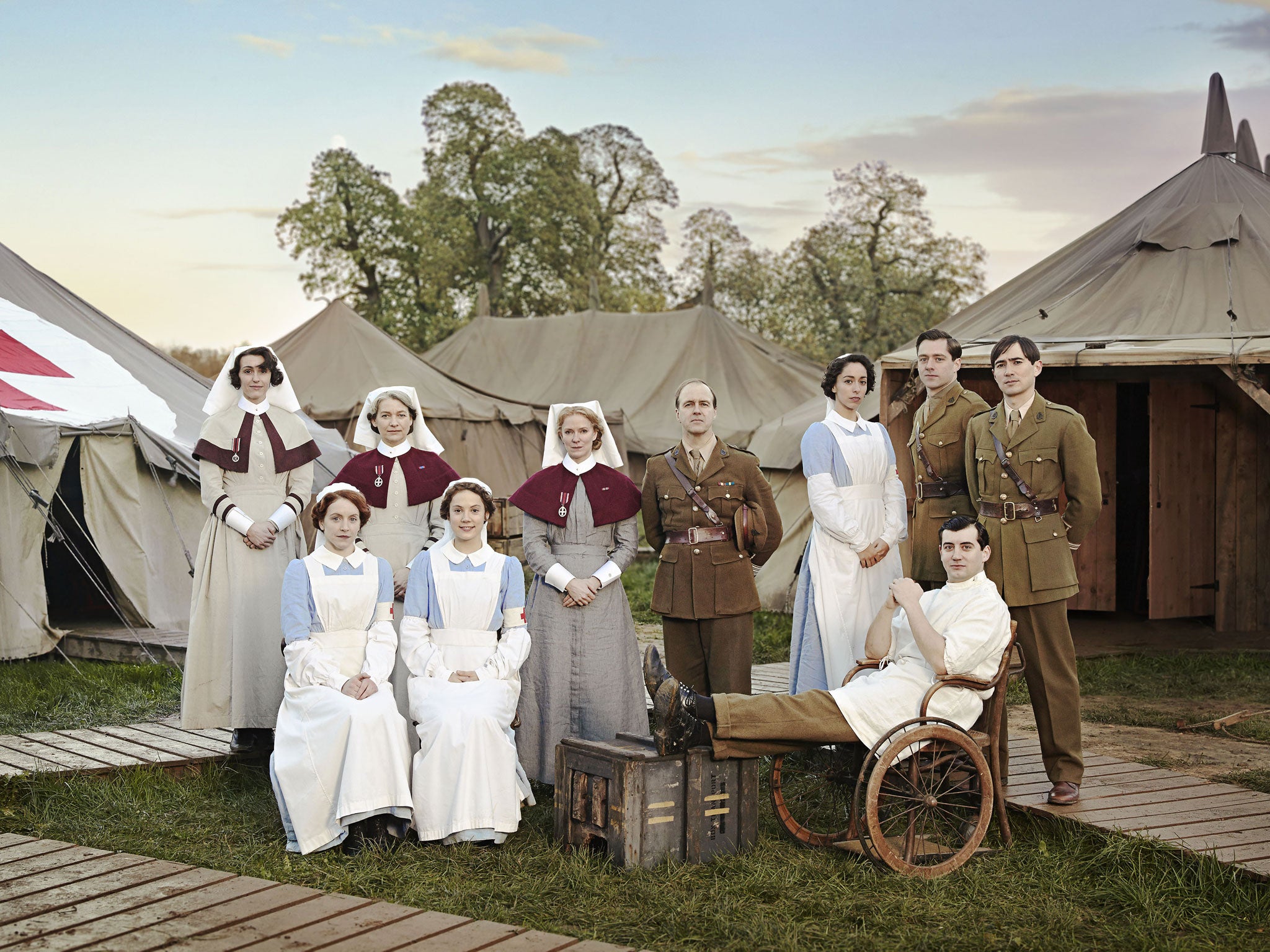The Crimson Field, TV review: A BBC drama that can't decide what it's about
Strong acting fails to rescue a series with promise

Your support helps us to tell the story
From reproductive rights to climate change to Big Tech, The Independent is on the ground when the story is developing. Whether it's investigating the financials of Elon Musk's pro-Trump PAC or producing our latest documentary, 'The A Word', which shines a light on the American women fighting for reproductive rights, we know how important it is to parse out the facts from the messaging.
At such a critical moment in US history, we need reporters on the ground. Your donation allows us to keep sending journalists to speak to both sides of the story.
The Independent is trusted by Americans across the entire political spectrum. And unlike many other quality news outlets, we choose not to lock Americans out of our reporting and analysis with paywalls. We believe quality journalism should be available to everyone, paid for by those who can afford it.
Your support makes all the difference.Having left our three heroines watching the patched up soldiers return to the front, the second instalment of The Crimson Field begins to fill in some of the characters’ backstories.
Front and centre (of the screen and, I suspect, most reviewers’ notes) is Oona Chaplin’s character Kitty Treveleyn. Denied access to her daughter by a mother who views her as ‘dead’, due to circumstances not yet fully explained, Kitty’s cool detached is lost briefly when Matron (Hermione Norris) reads her letters home begging for forgiveness. Chaplin is a moody joy to watch, ably navigating her pared-back dialogue and communicating more through her body language and eyes.
The relationship of Major Edward Crecy (Sherlock’s Rupert Graves) and his upper-class wife Adelaide Crecy (Jodhi May) forms the crux of the episode. After Adelaide’s arrival at Hospital 25A to find her husband in the soldier’s ward and missing most of both legs, the Crecy’s fractured relationship is clumsily used to illustrate the changing times the characters live in.
There are poignant moments between the two, sympathetically portrayed, but somehow lacking. The audience are never challenged. He’s a good man, soldier, leader, she’s stuck up but with a heart (think Lady Mary reacting to Matthew minus legs) so it’s all a bit predictable.
Meanwhile, alongside their reconciliation and Kitty’s rejection, Sister Margaret Quayle (Kerry Fox) is slowly staking out the ground as an enjoyably manipulative character. The combination of her prissiness, “But I didn’t ask you”, to Jeremy Swift’s dubious Sergeant Soper and insidious kindness to Rosalie (Marianne Oldham) can only pay off dividends for viewers as the series continues.
Rosalie and Quayle’s relationship looks set to become the most destructive element in the show (well, emotionally at least) and perhaps gives a hint to Quayle’s intentions to stymy the development of all the volunteers.
Finally, there’s the inclusion of an injured black soldier and his father. Just in case we hadn’t got the point about the changing times the BBC drop this pair in – who speak to no-one aside from Adelaide and seem to be there to be seen, rather than for any plot purpose. The son is neatly disposed of with an off-screen death at the end.
Together it makes for enjoyable viewing but I can’t help feel the series is unable to decide exactly what it wants to be. It’s not an amusing Downton romp, but it lacks the emotional pull of the BBC’s other forays into the same period. There are moments of touching frivolity, usually provided by either Flora (Alice St Clair) or Alex Wyndam’s foppish surgeon Miles, but the setting means the writers hardly need to stretch to demonstrate real emotion and when they do it comes off as oddly contrived.
Still, the opening episode racked up over six million viewers, so my guess is even if the series continues in much the same comforting vein, like other BBC dramas at the moment, those sitting at home are unlikely to change the channel.
Join our commenting forum
Join thought-provoking conversations, follow other Independent readers and see their replies
Comments